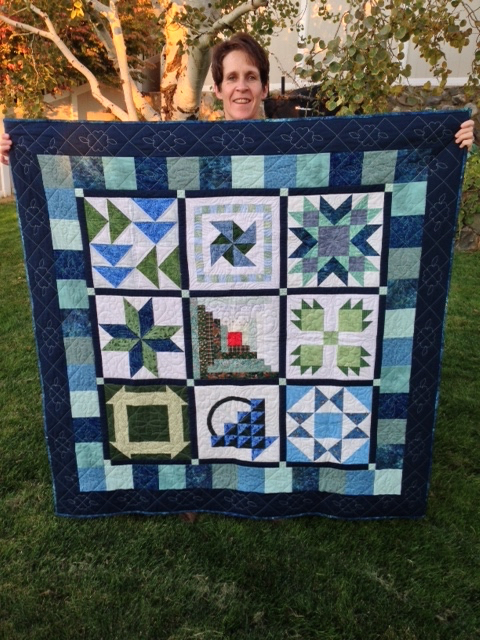I have always regretted giving up on music lessons at the tender age of seven, and as a young mother, I determined that my children would learn to play the piano or die trying. For one daughter, practicing was especially torturous. I cajoled, I bribed, I demanded, but nothing convinced her that practicing the piano was for her own good. On one particularly difficult day, while she pounded out her frustration in the key of C, I told her, “You’ll thank me one day.” With tears streaming down her face, she replied, “Mom, I promise I will never thank you for making me take piano.”
And she never has.
But when she moved away from home, she sent me the letter that every mother dreams of. She thanked me, not for making her play the piano, but for doing her laundry over the years and cooking thousands of dinners and teaching her how to clean a toilet. She wanted me to know that all that hard work and sacrifice had not gone unnoticed. When she had to do all that stuff on her own, she appreciated how much I had done for her.
Nothing gives me more satisfaction than fixing a good meal for my starving grandchildren or staying up late into the night to help my son figure out a complex Calculus problem. But often I wonder if much of my work goes unnoticed. Do my grandchildren appreciate who cooks them Sunday dinner? Does my son appreciate that his mother, who hasn’t taken a Calculus class in thirty-five years, is still willing to help him figure out complex equations?
In an effort to cross tasks off our endless lists, we often barrel our way through life with blinders on, never stopping to notice what other people do for us and failing to recognize our blessings or acknowledge where they come from. We are commanded to thank God in all things, and like self-centered children, we often forget.
 In Miriam’s Quilt, Miriam has spent most of her life taking her blessings for granted. She sees God’s goodness as a natural consequence of her own “righteousness.” When her family begins to fall apart, she learns to recognize God’s loving care in the midst of her trials.
In Miriam’s Quilt, Miriam has spent most of her life taking her blessings for granted. She sees God’s goodness as a natural consequence of her own “righteousness.” When her family begins to fall apart, she learns to recognize God’s loving care in the midst of her trials.
Two quilts are central to the story. Miriam is deeply grateful for the acceptance and friendship Seth Lambright offers her. She spends hours crafting a special quilt to express her gratitude. She makes the other quilt for her boyfriend Ephraim. Self-centered and inconsiderate, Ephraim only recognizes the monetary value of Miriam’s quilt. His reaction makes her feel small and unappreciated. Seth, on the other hand, cherishes the gift, worries that Miriam sacrificed too much time on it, and expresses his gratitude from the depths of his soul. Miriam never regrets making it for him.
Guess which boy Miriam chooses in the end.
We should never underestimate the power of a thankful heart and the impact our gratitude can have on another person.
Our appreciation need not come with a quilt or an elaborate party or a plate of cookies. A short, heartfelt thank-you doesn’t cost anything, takes little effort, and can mean the world to someone. I want to thank all of you readers who read my books, give me encouragement, and keep me going. I hope you know how much your support means to me.
Several years ago, a sweet, elderly lady was particularly touched by a song my son performed in church. She told him, “Thank you for your song. You used to be quite rambunctious, but you’ve turned out very well.”
He’ll remember that forever.
We all liked being appreciated. It’s nice to hear my children’s and grandchildren’s gratitude now and then.
Working together late one night, I helped my son solve a particularly tricky math problem. He closed the book with a satisfying thud and said, “Mom, you’re a genius.”
He gets extra dessert for the rest of his life.
But he still hasn’t thanked me for those piano lessons.
I hope you have a wonderful and blessed Thanksgiving. And eat some pie for me!





I took two years of organ lessons. How I wish I’d continued!
Meanwhile, that little Packer practicing piano, and your stories set in Wisconsin. Do you have Wisconsin roots?
Thank you so very much! May you and your family have a Blessed Thanksgiving also.
I sure liked reading what you had to say. My 3 adult children or even my husband never thanked me for all I did to this day.
For the past 6 years due to my arthritic back I’m unable to do much so my husband said he retired to become domesticated.
I make sure I thank him for each dinner he prepares & also from time to time thank him for doing the laundry, housework or whatever.
Still I’d like to have gotten a thank you. I won’t give up hope perhaps one day they’ll thank me.
Your note hit a cord. Thank you so very much for sharing.
Take good care of yourself & stay safe.
God Bless.
Shirley Power
P.S. I recently (the past 2 years discovered you as an author. I love how & what you write. I’ll be following you from now on. Thanks for being such a good author.
Shirley.power7703@gmail.com
I as wrong I didn’t order this book as I can’t seem to find it in Canada ?? or Mirim’s Quilt. I’ll look for it on Amazon where I hopefully find & get it delivered to Canada ??. I don’t have Kindke but an ereader. I prefer paperback.
Take good care of yourself & stay safe.
God Bless.
Shirley Power
Shirley.power7703@gmail.com